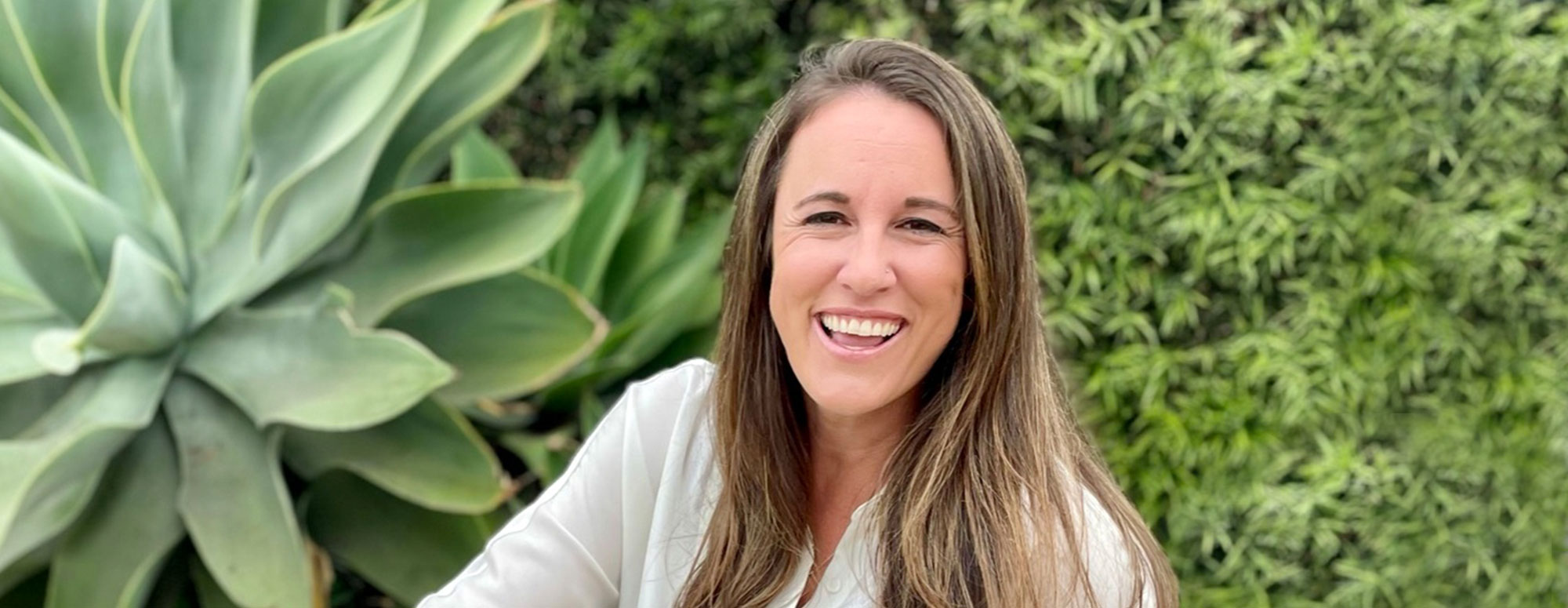Will you give everyone a brief bio?
My career prior to founding NIL Network was 100% in volleyball. I played collegiately at UC Santa Barbara, professionally for a season in Denmark, and then started coaching. I coached beach volleyball at University of Hawaii, indoor volleyball at Pepperdine, and then transitioned into coordinating the Olympic pipeline program for USA Beach Volleyball. I worked at HUDL with the largest volleyball clubs in the country before co-founding Beach Volleyball Consulting, a consultancy committed to assisting professional athletes with sponsorship opportunities and supporting organizations on growth initiatives. A lot of what I saw in the beach volleyball world translates remarkably well into collegiate athletes now navigating their own monetization opportunities.
For those not familiar with NIL, can you describe what you do?
In November 2020, I started a company called NIL Network – which is the premier hub of resources for college athletes, coaches, and administrators to navigate the new industry of Name, Image, and Likeness (NIL). Over the past 1.5 years, I’ve used the website and Instagram account to share insights, tips, and strategies as well as evolving trends to track. In November of 2021, I also began working at San Diego State University as their NIL Coordinator. SDSU was the fourth university in the country to hire an NIL specific position and I was more than ready to build an educational program for all 500 athletes, their coaches, and the San Diego community. The experiences that I’ve had working in the athletic department have been invaluable to my thorough understanding of this NIL world outside of the headlines.
What inspired you to take this path?
In 2015, when I was coaching beach volleyball in Hawaii, the O’Bannon case (sometimes known as the EA sports or video game case) was settled. This grew the public awareness of NIL and how athletic departments made millions of dollars while their athletes weren’t permitted to monetize their likeness. With increasing TV contracts and the rise of the social media influencer industry, it was becoming overwhelmingly apparent that this wasn’t right.
Fast forward to the fall of 2019, California passed SB206: The first state bill that addressed collegiate athletes having the right to monetize their NIL. At the time, I was building a strategic plan on behalf of the American Volleyball Coach Association (AVCA) to get men’s beach volleyball added as a collegiate sport. I was deep in studying the economics of intercollegiate athletics and strategizing on how to convince athletic departments to ADD a men’s sport in the era of eliminating Olympic sports for men.
I was fascinated.
Without a legal background, I wasn’t aware that a state could pass a law to trump the NCAA bylaws. SB206 gave the NCAA plenty of time to change its rules with an initial enactment date of January 1, 2023. The NCAA reacted immediately – they threatened to sue the state of California, prohibit California schools from competing in championships, and/or kick the California schools completely out of the NCAA! It was obvious that this was going to cause a massive disruption in collegiate sports.
Fast forward to the fall of 2020, an article popped up on NIL. As I read through it, I was shocked. NIL reform was moving rapidly, with huge deadlines around the corner in early 2021, and nobody was paying attention. As I googled around, there was no information hub that people could utilize to learn about this emerging change.
I thought, why not me? I knew nothing about managing a website, but it’s always been on my list of skills to develop. Could I develop a resource the country could utilize to understand this massive change in collegiate sports? $20 later, and nilnetwork.com was mine.
Tell us about some fears you’ve had to overcome being a leader in your space.
I’m not sure if I’ve “overcome” my fears as much as I’ve forced myself to keep pushing my boundaries. When I first started NIL Network, I was afraid to take a meeting! I was terrified of being on a podcast … Let alone anything live.
Over the past 1.5 years, I’ve accepted every opportunity presented to me. I’ve met with over 150 company founders, been a guest on dozens of podcasts, and even participated in numerous live speaking engagements.
And you know what? It hasn’t been terrible. While I will always be my harshest critic, other stakeholders in the industry have given me positive feedback, and I’ve been reached out dozens of times by people saying they enjoyed listening to me on a podcast.
As long as I stay true to myself and the values I’ve set for NIL Network, I can overcome any challenges or doubts.
What keeps you motivated?
As the only individual in the NIL space with a background in coaching and now the experience at SDSU as their NIL coordinator, I have a unique perspective, ability, and self-imposed obligation to support all athletes, coaches, and administrators, regardless of the sport or division.
This is a new industry. What is the one thing you hope to achieve through your work?
I hope to contribute to a more transparent industry and provide guidance for as many people as possible. Outside the headlines, there are nuances and complexities of this new world that all stakeholders need to understand to successfully transition into this new era of collegiate sports.
